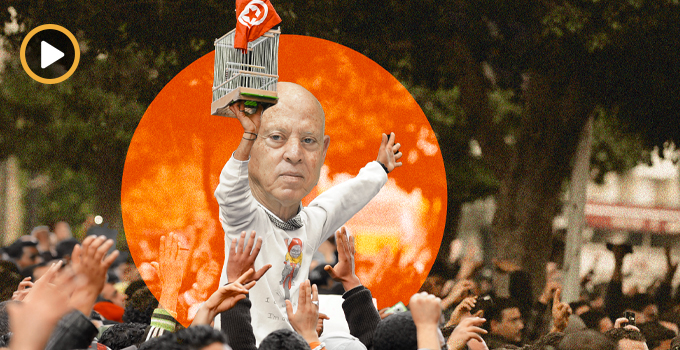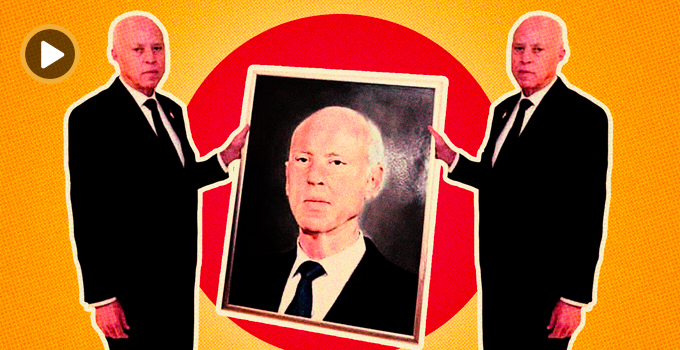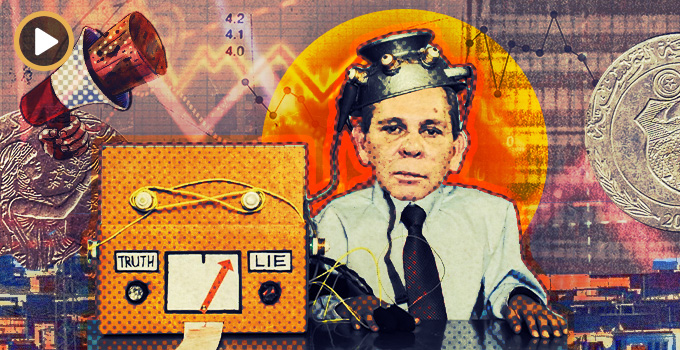
The countdown to legislative elections has come to an end. Between massive gatherings of political parties vying for votes and campaigns that have bombarded the streets, there exists a category of Tunisians that has been little recognized by the media. Some are silent, while others call openly for a boycott of the country’s 2014 elections.
The evening of Thursday, 23 October, three activists of Rassemblement du boycott des élections 2014, Nadhim El Arbi, Bachir El Hamdi, and Khelil El Khemiri, were arrested in downtown Tunis. The activists had been distributing flyers calling for a boycott of the elections. « While one private television station was filming our activity, the police arrested us under the pretext that we did not have authorization to be there,» explained Khelil. The activists were released the following day by the public prosecutor, and have since explained to Nawaat the reasons for their boycott campaign :
According to the three activists who spoke to Nawaat, national media has not covered any of the group’s undertakings preceding elections, although they have been active for months. In spite of their invisibility in the media (and, in fact, their preference to be spared criticism of their abstaining to vote), the number of people who will not participate in elections is considerable. Aside from citizens who refused to register, many others who did go to the trouble of registering have expressed at the last minute their skepticism about the electoral process. Amine Ouichka, a young engineer, explains his reason for boycotting :
Why vote to enable non-democrats to access power through a democratic process?
There are indeed a fair number of Tunisians equally disappointed with the country’s democratic transition. An example are the families of the martyrs of the revolution who gathered on Avenue Bourguiba on 22 October to vocalize their discontentment against a transitional justice process that, from their perspective, has been blocked by the whole of the political class. Another example are youth from marginalized regions throughout the country who are boycotting the elections which will «assemble the criminals and corrupt officials of the previous regime, as well as islamist terrorists who will ally to reinstate the dictatorship», said Moudhafer Laabidi, former political prisoner of the mining basin who remains to this day without work.
In a democracy, the importance of a political position is not measured by the number of its supporters. And yet, there is a weight upon Tunisians who do not agree with the choice to proceed with legislative elections while the electoral law in place does not protect the interests of Tunisians. It is for this reason that many will not vote. What will the elections change for them? Nothing! And they know it! No, we all know it! Ahlem, civil society activist.
Some believe that disappointment with parliament (the National Constituent Assembly) in 2011 discouraged many who have subsequently lost interest in the political arena:
I was filled with so much regret because I had voted for CPR and ended up spending months defending the indefensible Moncef Marzouki and his Troika! Now I feel no guilt for not voting because I see the candidates are the same and they will not do anything for the country, even after fifty years. Zebaida Mejri
Many evoke a disinterest in elections given the economic crisis and security issues that have only exacerbated over the course of the past several years. Promises made during the 2011 elections initially inspired very high hopes but have since been the source of extreme disappointment. The bipolarization of the electoral process, essentially based upon the notion of strategic voting, and the struggle against terrorism do not help the silent majority to decide whether or not to vote. In the almost complete absence of economic and political programs, it is difficult to differentiate between the hundreds of electoral candidates.
In view of the battle in the media between islamists and destourians, I am convinced that it’s useless to vote. I wouldn’t vote for the sole reason of sabotaging the islamists because I know very well that all political parties, whatever their ideological affiliations, will not be up to the task of establishing true justice and an independent economy. These elections only reflect political individualism and the power of money. Sonia Ben Rehayem.
Among many unknowns, voter turnout for the legislative elections this weekend and presidential elections next month is certainly among the most consequential of factors in this culmination of Tunisia’s democratic transition process.





iThere are no comments
Add yours